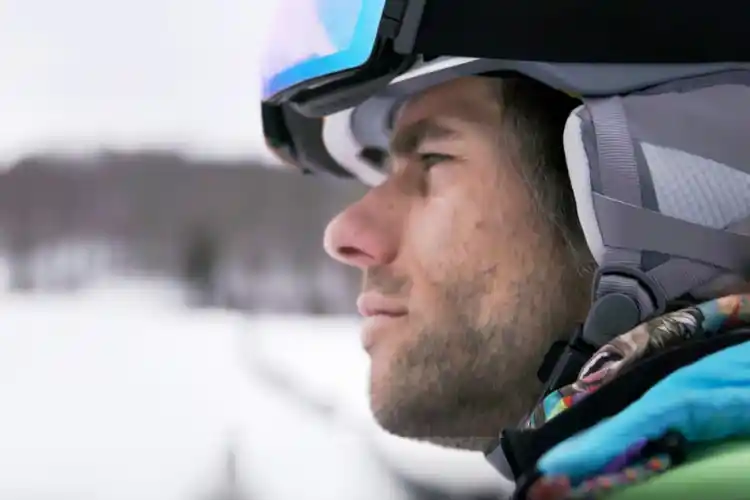A Face of Tardive Dyskinesia

Hide Video Transcript
Video Transcript
BRIAN SMUDA
TD, or tardive dyskinesia, is pretty much uncontrollable, jerky movements of the body. Smacking of the lips, licking, or jaw movements. I have Tourette's, and I kind of feel like it's just an increased version of Tourette's. So back in the age of five, we went to my primary care doctor and noticed I was doing a little head nod. We didn't know at the time that that would be Tourette's. When I graduated college in 2008, I said to my parents that I didn't want to have the Tourette's anymore.
I thought, you know, I can get treated for that with medicine. After four years, in 2012, I started getting anxiety, panic attacks. So I got prescribed some antipsychotics, which didn't much work well for me.
When I took that, that would lead to the jerking of the neck and then the head rubbing, uncontrollable arm spasms. Those are the three major symptoms, which we noticed in, like 2012 and '13. As the symptoms developed, they were trying to treat the Tourette's as well as the anxiety issue.
There was about 11 medications over a six-year span, trying to treat what the doctors at first, and for a long period of that time thought was just worse Tourette's as I got older.
My movement has spread to my whole body. I just woke up. I can't do anything.
ANTHONY ROSSEAU
There were good days, and then there were bad days. It'd be like, OK, he wouldn't have any movement at all, and it'd be great. And then the next day his twitches were so bad that he'd be throwing up. BRIAN SMUDA
I just showered. Threw up four times. These are the involuntary movements I have going right now. I went to a local hospital in Boston, and they said, for the first time ever, tardive dyskinesia. When they pinpointed this was caused by the medicine, from there we were able to focus on getting steps done to counteract what was going on.
So there are other options for the-- treating the TD. Medicines or movement therapy and stuff like that. Mine was, though, the deep brain stimulation.
ANTHONY ROSSEAU
He'd hit a wall, and that'd be it, or there's gonna be a light at the end of the tunnel. With the surgery, that was the light at the end of the tunnel. BRIAN SMUDA
Getting into the DBS program, I was referred by my psychiatrist. [SOFT ACOUSTIC MUSIC]
And from June 26th to August 2nd, that's all the time it took for me to go through all the exams to see if you would be a candidate for that procedure. Post-procedure and getting the right settings for me have definitely improved the movements.
ANTHONY ROSSEAU
Yeah, he still does have body tics, and he's still moving. But the progress that's been made, it's just fascinating. BRIAN SMUDA
The brain operation, for me, was a huge stepping stone that allowed me to get back to living again. I was able to ski 86 days after the initial brain surgery, which was opening day of my favorite mountain in Vermont. When I go skiing, it totally lets me escape my mind of tardive dyskinesia. ANTHONY ROSSEAU
When we're on the slopes, when he's going down the mountain, there's no tics or anything like that. Since post-surgery, quality of life has improved. As long as that keeps up, I think that he's gonna be successful. BRIAN SMUDA
What I can recommend to people that either are not yet diagnosed or are currently diagnosed newly or it's 10 years on and they haven't seen any improvement, follow what your movement disorder specialist says and just keep on pushing on. Hope for tomorrow. After the deep brain stimulation, there's days where I wake up, I feel around, like, 80% better. There's days where you feel depressed in a funk. When I feel in a funk, I still have the hope that my day gets better.
If I go out and do something joyful I can, ultimately, step that up a little bit and, you know, sit there and just be nice, prompt, and relaxed. If you're hopeful enough and you go out and go for a hike, you go for a bike ride, you do something that brings you joy, you can appreciate the highs in life that you can get from simple joys.
